Meet Our Service Line Leaders
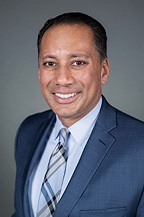
Nishant Anand, MD, FACEP
Executive Vice President
Chief Medical Officer
02/18/2019
Last month, I introduced the concept of care transformation and how we need to align the pieces to deliver extraordinary care for every person, every time, everywhere. We have a lot of great work going on throughout the system that doesn’t always get shared.
Many of you know about our service lines, but do you know who leads them? I’d like to take this opportunity to introduce you to all of our service line leaders and invite you to learn more about each of them below.
It’s important to have leadership over each of these service lines to more closely integrate our work and avoid the dreaded silos that can get in the way.
I hope you’ll take some time to get to know your colleagues, read about their vision below and provide them with your feedback. This is a collaborative effort and your voice matters.
- Behavioral Health: Nick Dewan, MD; Gail Ryder
- Cardiovascular: Mahesh Amin, MD; Kimberly Guy
- Neuroscience: Hal Colbassani, MD; Sanjiv Sahoo, MD; Stuart Sinoff, MD; Lou Galdieri; Elizabeth Winter
- Oncology: Peter W. Blumencranz, MD; Matt Novak
- Orthopedics: John E. Kilgore, MD; Scott Smith; Erin Kilgore
- Pediatrics: Christina Canody, MD; Kimberly Guy; Sarah Naumowich
- Women’s: Sandra Brooks, MD, MBA; Sarah Naumowich
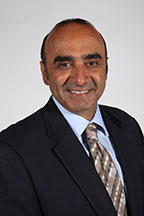
Nick Dewan, MD
CMO, Behavioral Health
Current Environment
The field of behavioral health has experienced significant advances in basic neuroscience, evidence-based psychotherapies and social interventions, digital solutions and novel biological interventions. At the same time, the despair and burden of behavioral health illness is on the rise as reflected in higher suicide rates and overdose events across different age groups.
Furthermore, a new era of accountability and value-based purchasing is on the horizon for behavioral health, as evidenced by the emergence of quality registries, cost and quality measures for psychiatric DRGs, and episode of care reimbursement models.
Existing Services
The Behavioral Health Division of BayCare has over 1,200 team members and 50 psychiatrists, psychologists and advanced practice nurses stretching across Hernando, Pasco, Pinellas, Hillsborough and Polk counties providing network management services, inpatient, residential, outpatient and comprehensive community mental health services to over 65,000 people every year.
Important milestones over the past five years have included implementation of evidence-based guidelines for alcohol withdrawal in medical settings, genetic testing to target treatment refractory syndromes, tele-psychiatry for rural populations, digital solutions for patients, mental health coaches and navigators for complex patients, home-based and school-based services, and integration with primary care.
Future Vision
The clinical vision for behavioral health at BayCare is to develop an accountable and medically-integrated approach to episode of care management and measurable results for mood disorders such as depression and bipolar disorder, severe and persistent mental illness such as schizophrenia and schizoaffective disorders, substance use disorders, and childhood disorders.
This vision will be supported by intelligent digital tools for clinicians and patients, a culture of care reliability and zero harm, and a team-based approach to care. We expect to expand our services to include mobile crisis teams that will travel to schools and homes to address crisis situations and, if needed, work with law enforcement to help navigate families and patients to the proper level of care. We will be expanding our medication-assisted treatment services to address the epidemic of opiate use disorders in our community, and implementing neuroscience-based technologies such as transcranial magnetic stimulation in outpatient settings to treat depression and other brain-based disorders.
Finally, our vision is to develop a community platform that is dedicated to early access, prevention and promotion of health and intergenerational mental health well-being.

Mahesh Amin, MD
Medical Director, Cardiovascular
Kimberly Guy, market leader for Hillsborough County, and I co-lead the service line, assuring participation of practicing physicians and the clinical care teams from across the system.
The Cardiovascular (CV) Service Line steering committee has oversight for the subcommittees divided along the following disease management groups:
- Coronary Intervention
- CV Surgery/Structural Heart
- General Cardiology/Heart Function
- Rhythm Section
- Vascular Service Line
- Pediatric Cardiology/Adult Congenital Heart Disease
Each subcommittee is chaired by a practicing physician with membership derived from each hospital. The groups meet quarterly to review and analyze data, establish evidence-based practice, select vendors, guide marketing decisions and help develop the long-term strategic plan for CV care within the BayCare Health System
Expanding service offerings to new facilities requires a formal service, outcomes and cost analysis after a community needs assessment has been completed. The needs analysis addresses local strategic initiatives. Introduction of new technologies requires similar analysis with a heavy emphasis on whether this impacts our ability to improve our quality performance.
Quality is assessed on data that has national benchmarks, where available, across all the hospitals. This includes clinical results, utilization, total cost and patient satisfaction. Additionally, local parameters are measured for improvement purposes at individual hospitals, which are benchmarked internally within BayCare. The data is standardized and collected uniformly.
A dashboard has been created and maintained to populate the data for analysis and share it with clinicians. The dashboard is used to identify gaps in care – clinical, utilization, patient satisfaction – and action plans are developed and implemented per institution and individual physician.
The CV Service Line promotes a “heart team” (multi-disciplinary) approach to manage complex cases wherever it is appropriate. Research is an integral part of the CV Service Line. Research allows for introduction of new techniques as well as new devices for patients who currently have no or limited therapeutic options.
A few of the successes have been reduction of AMI and CABG mortality, decrease in readmissions for HF, expansion and standardization of cardiac rehab services, implementation of a BayCare LVAD program, and standardized credentials criteria for CV specialists at all institutions.

Hal Colbassani, MD
Medical Director, Neuroscience
I have been an actively practicing neurosurgeon for the last 30 years and have been part of the Morton Plant Mease/BayCare family since 1992.
Over that period of time, I have seen and helped implement many changes. Currently, we are not only undergoing a transformation of the BayCare Health System, but also in the way we will be delivering care.
While I believe our neurosurgeons and spine surgeons have provided excellent care in our individual hospitals, we have not always cooperated closely with one another across the health system to deliver consistently outstanding care all the time.
My vision for the Neurosurgery Service Line, as well as the Spine Collaborative is, first, for all surgeons to get to know one another, and then, in an atmosphere of mutual respect, to share practice patterns, decision-making and patient outcomes.
Guided by the literature and best practices, we will gradually agree upon the best way to deliver care to the communities we serve. In this way, we can reduce and ultimately eliminate the variations that potentially cause confusion within the health care team we are a part of and, at the extreme, can lead to errors.
While achieving these goals, I also believe we can learn to improve efficiencies and reduce costs, so that our patients will be the beneficiaries of both quality and value.

Sanjiv Sahoo, MD
Medical Director, Neuroscience
Vision
To develop an evidence-based standard of care for all patients coming to BayCare facilities for stroke, syncope, memory loss, headaches and other prominent diagnoses, so that every patient receives excellent, high-value, high-quality care anytime, anywhere in BayCare, with the best outcomes.
In addition to a stroke collaborative, we also envision a memory center to serve the Hillsborough County area and development of a functional neurosurgical program in close conjunction with neurology for patients with refractory epilepsy, Parkinson’s disease and tremors at St. Joseph’s Hospital.
Strategy
We have already developed pathways for ischemic strokes and intracerebral hemorrhage and are in the process of educating all the facility key providers on the latest stroke treatment pathways.
We are also in the process of developing order sets, other pathways and guidelines to help hospitalists, ER physicians and other primary attending physicians manage all stroke patients from admission to up to 90 days of discharge. We’ll leverage evidence-based recommendations on use of resources including medications, imaging and post-discharge use of care facilities, SNFs, rehab units, hospice, etc. This will help our stroke patients return to their highest level of functioning in the most efficient and timely manner.
We plan to continue our work with the new St. Joseph’s Hospital (SJH) stroke manager and stroke team to improve our Door-to-Puncture times, and meet all requirements in metrics for DNV certification for comprehensive stroke centers at SJH and Morton Plant Hospital (MPH), and primary certifications in all other facilities including thrombectomy plus certification at Winter Haven Hospital and later at Mease Countryside - all part of the ongoing SOC project, which includes enabling timely transfer of stroke patients to the comprehensive stroke care hospitals. We are also looking into the tele-neurology service standardization across the system.
We are also currently working on a proposal for the establishment of an outpatient memory center for the Tampa/Hillsborough County area to service the St. Joseph’s hospitals, mirroring the two memory centers at MPH and St. Anthony's Hospital. This will allow research opportunities and provide resources to our patients with neurodegenerative diseases and dementia.
In addition, we are in the process of expanding our services to include surgical options for Parkinson's disease, tremors and refractory epilepsy patients by setting up a deep-brain stimulation movement disorder program, epilepsy monitoring unit and epilepsy surgery program at St. Joseph’s Hospital. Future plans to expand MS infusion sites and establish neuromuscular multidisciplinary clinics are also in the works.
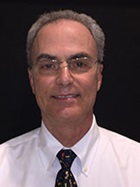
Stuart Sinoff, MD
Medical Director, Neuroscience, West
Vision
To develop evidence-based standards of care for diseases of the brain, spinal cord and nerves. Every patient will receive excellent high-value neurologic care at every BayCare facility.
BayCare Neuroscience Direction and Initiatives
The BayCare Stroke Network will comprise two Comprehensive Stroke Centers acting as central “hubs” where highly specialized stroke teams will administer the most advanced care available. Multiple Primary Stroke Certified centers will deliver first line, point-of-care, cutting-edge thrombolytic stroke treatment. Primary Stroke Centers are networked with Comprehensive Stroke Centers and have streamlined rapid transfer protocols for patients identified as having large vessel occlusion. These patients require more complex evaluations and are candidates for mechanical thrombectomy at our Comprehensive Stroke Centers.
Our Neuro-Cognitive Subgroup addresses another major community need: memory disorders, including Alzheimer’s disease. At St. Anthony’s Hospital and Morton Plant Hospital, we currently have Memory Disorders Centers staffed by neuropsychologists who interpret detailed neuro-psychological tests for patients with memory disorders. Social workers experienced in this space coordinate patient and family education, and connect them to an array of community resources, sensitively partnering with them on their challenging journey. A third Memory Disorders Center is in development at St. Joseph’s Hospital, which will further establish BayCare as the leading provider of Memory Disorders services in the Tampa Bay community. In the summer of 2019 we expect to begin enrolling patients in a major Alzheimer’s research study, a five-year longitudinal cohort with the goal of identifying specific and low-cost biomarkers for identification of the earliest forms of the disease.
A major theme for the Neuroscience Service Line in 2019 is “Patient Care Redesign.” Embracing new and innovative payment models, we are redesigning clinical pathways across an episode of care including post-acute care, recovery and rehabilitation. Care Redesign is a data-driven, evidenced-based initiative encompassing prevention, acute care, rehabilitation and recovery. Patient Care Redesign will achieve the best quality outcomes for our patients while reducing the cost of care.

Peter W. Blumencranz, MD
Medical Director, Oncology
Oncologists are faced with rapid changes in anti-cancer treatment, typically with increased cost. Yet, present efforts are to move health care delivery from fee-for-service to a value-based transformation of the entire health care system.
This often requires doing more with less while providing care across the cancer continuum from prevention, to treatment, to survivorship and end-of-life care. This change with increased use of bundled payments will require a critical evaluation of evidence-based best practices.
Our goal is to deliver high-quality care measured by quality metrics leading to improved outcomes. This will require development of practice guidelines and promotion of best practices.
Achieving improvement, however, will not simply be following results of clinical trials providing the best level one evidence. Trials are often skewed to a younger population and often do not include the elderly - an increasingly large proportion of cancer patients, especially in Florida.
We will need to deliver personalized care in a value framework. Typically, value involves cost of care most important to health systems and payers. More difficult - but critical to incorporate into the value equation - will be patient and family preferences, especially at end-of-life. The role of shared decision-making will need to be evaluated in this transformation of care.
None of this will be easy and will require extensive use of health information technology to capture and analyze data, be consistent through all of the BayCare Health System and allow providers to assess their performance to drive improvement in real-world practice.
As medical director of the Oncology Service Line, I look forward to the challenges ahead and working with all of our cancer providers.
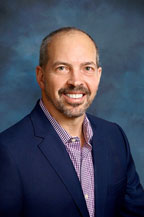
John E. Kilgore, MD
Medical Director, Orthopedics
The overarching vision of BayCare's Orthopedic Service Line is to provide quality-focused, patient-centered orthopedic care.
To accomplish this, the service line will use a consensus approach to identify what is considered to be best practice and then monitor our progress through transparent data analysis. This, in turn, will serve to drive a consistent delivery of orthopedic services across all BayCare hospitals.
The Orthopedic Service Line plans to accomplish its quality outcome goals through a care transformation approach utilizing clinical pathways.
These pathways promote organized and efficient patient care based on evidence-based medicine.
Although the principal goal of the Orthopedic Service Line is to deliver quality care by reducing variation of practices, we acknowledge and recognize unique cultures among BayCare's individual hospitals and geographic areas that must be considered and respected.
Implementing current pathways, developing new ones, utilizing patient optimization techniques and introducing data transparency are some of the ways the service line will be successful. This approach will require cooperation and engagement among a multitude of medical disciplines and services across BayCare Health System.
Entrusted to drive implementation and help coordinate this plan is Erin Kilgore, PA-C, our administrative service line manager, who has more than 15 years of expertise in the delivery of Orthopedic Services. Please feel free to reach out to her or myself with any ideas, questions or concerns as we move forward with this strategy.
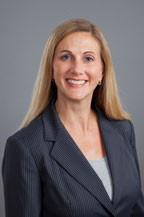
Christina Canody, MD
Medical Director, Pediatrics
The Pediatric Service Line encompasses the care of our patients from birth through adolescence and includes Neonatology, Pediatrics, Adolescent Medicine, Critical Care, Pediatric Surgery and Pediatric Specialty Care. We are dedicated to clinical excellence in both our medical and surgical programs.
Our goal is to have a consistent, quality process for the care of each person who transitions from our outpatient providers to our inpatient services and back to the patient’s primary care home. Our extraordinary team strives to provide personalized, compassionate and quality care and is working toward a full provision of pediatric trained ancillary support services.
The Pediatric Service Line is dedicated to providing education to our pediatric providers in Tampa Bay to enhance their practice of medicine and promote ease of access to our specialists and their expertise.
We strive to optimize the quality and consistency of pediatric care in all of our facilities under the guidance of St. Joseph’s Children’s Hospital (SJCH), which provides pediatric subspecialty care. Our goal is to set the standard of care that is expected for each patient no matter the location or provider within BayCare Health System. We work alongside and in co-operation with the other BayCare service lines to develop protocols and pathways that are mutual to our shared patient populations.
Additionally, we aim to educate our pediatric patients (and families) about their health, making them informed consumers for the future of health care. Education is a key component of our strategy to affect the overall health of our community and those we serve. The development of pathways for care within our service line will include educational elements for our team, our patients and their continuity of care once discharged from our facilities. Communication among the team members, consumers and their families, and outpatient providers is a key element to this care transformation. Pathways will be designed for the provision of quality care to our patients from our providers and support services. There will be demands for change as we adapt these services to support quality care that enhances the customer experience.
The quality of our care will also be supported with financial responsibility and the provision of high-value care. Pathways that guide our care will be developed with optimal value and consideration of cost to the consumer, both during their acute treatment phase and ongoing therapies. Clinical documentation improvement has recently been implemented within SJCH to improve coding and documentation of patient encounters. This process will benefit our patients, providers and our hospital by accurately capturing patient care in the documentation and optimizing the reimbursement for care.
Overall, the Pediatric Service Line is a dedicated, exceptional team working together to care for the children of Tampa Bay and surrounding areas. Our passion is to provide high-quality, compassionate care, and we strive to continually improve our efforts and the health of those we care for. We are excited to be a part of care transformation within BayCare and hope you share our excitement as we reach for new heights in clinical excellence.

Sandra Brooks, MD, MBA
CMO, St. Joseph’s Women’s and Children’s Hospitals
Each year, BayCare-affiliated providers and team members deliver more than 14,500 babies, and provide care that represents nearly 40% of the market share in our four-county region.
The Women’s Service line comprises physician, nursing and administrative professionals from across the health system dedicated to disseminating best practices in support of high-quality care for women. We are on track for reducing early elective deliveries and surgical site infections compared to last year.
Our 2018 initiatives focused on finalizing a protocol for management of hypertension in pregnancy and updates in antibiotic management of peripartum patients.
We are due to launch our intranet site this year, which will make it easier to communicate updates and our Best Practice Guidelines.
Going forward, we are implementing new patient safety protocols, including early recovery after cesarean section and hysterectomy initiatives, working to expand breast cancer screening and standardizing our approach to the early diagnosis of breast cancer.

